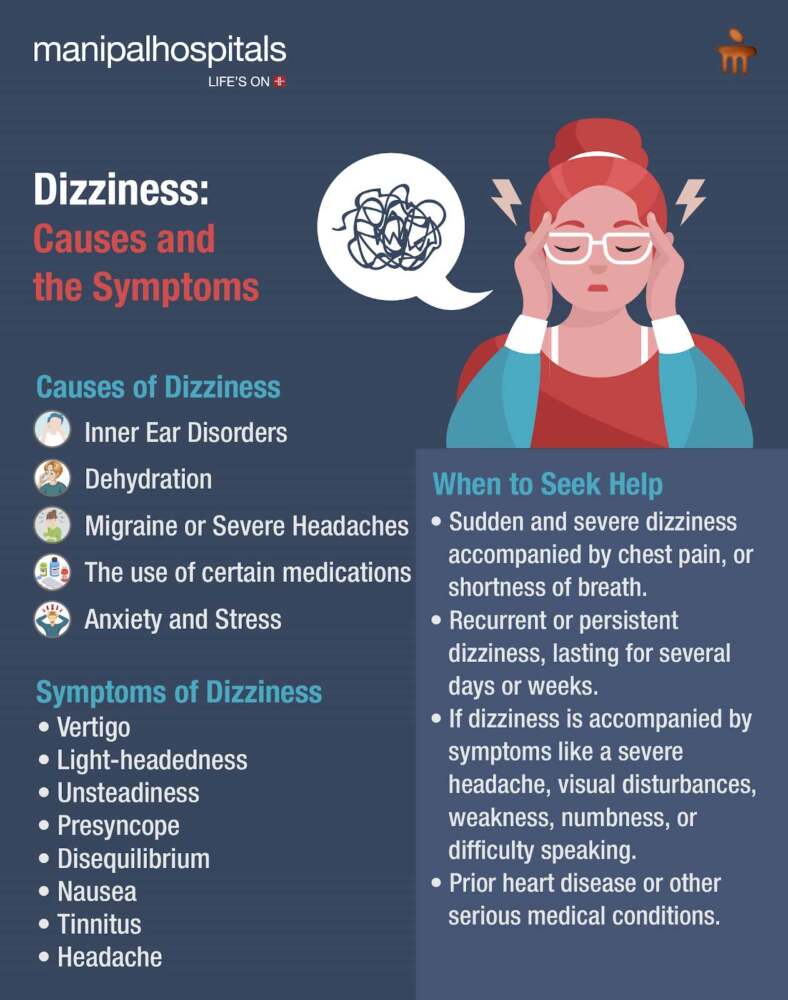Dizziness can be more than just a fleeting moment of lightheadedness—it spans a range of unsettling sensations, from mild imbalance to full-blown vertigo. Especially as people age, these episodes become more frequent, heightening the risk of falls and injuries. Yet, understanding potential causes and treatments can help bring balance back to daily life.
Common Causes of Dizziness
- Inner Ear Disruption (Vertigo)
- A frequent culprit is benign paroxysmal positional vertigo (BPPV), which happens when tiny crystals in the inner ear shift, creating a spinning sensation when you move your head.
- Other inner-ear conditions such as vestibular neuritis, Meniere’s disease, and vestibular migraines can also trigger dizziness, often alongside ear pressure, ringing, or hearing changes.
- Circulatory and Pressure Issues
- Rapid drops in blood pressure, especially when standing up too quickly, may lead to lightheadedness.
- Problems like anemia, low blood sugar, irregular heart rhythms, or poor circulation can further reduce oxygen to the brain, causing dizziness.
- Medications and Dehydration
- Common prescriptions—including diuretics, antidepressants, sedatives, and blood pressure medicines—sometimes list dizziness as a side effect.
- Dehydration is another simple yet powerful trigger; when the body lacks fluids, blood volume drops, lowering blood flow to the brain.
- Psychological Factors
- Anxiety, stress, and depression are often overlooked but can play a significant role in dizziness, even without an obvious physical cause.
- Serious Conditions to Watch For
- Though less common, dizziness paired with symptoms like facial drooping, trouble speaking, weakness, or blurred vision could indicate a stroke or other neurological emergency requiring urgent attention.
Practical Remedies You Can Try at Home
- Hydrate Consistently: Aim for at least 7–8 cups of fluids each day.
- Move Mindfully: Avoid sudden position changes—stand up slowly and steady yourself before walking.
- Try the Epley Maneuver: A guided head-turning exercise can reposition inner-ear crystals and relieve vertigo.
- Check Your Medications: Regularly review prescriptions and supplements with your doctor.
- Improve Home Safety: Prevent falls by removing loose rugs, using non-slip mats, and ensuring good lighting.
When to Get Medical Help
- Dizziness that lasts more than a few minutes or recurs often
- Accompanying symptoms such as speech difficulty, sudden headache, or vision changes
- Severe balance problems or frequent falls
Quick Summary
| Category | Details |
|---|---|
| Inner Ear Issues | BPPV, vestibular disorders, vertigo |
| Circulatory Causes | Low blood pressure, anemia, heart rhythm problems |
| Medications & Fluid | Side effects, dehydration |
| Emotional Factors | Anxiety, stress |
| Simple Fixes | Hydration, slow movements, home safety |
| Warning Signs | Speech trouble, facial weakness, prolonged dizziness |
Dizziness is usually manageable, but if symptoms are frequent, severe, or come with warning signs, professional medical evaluation is essential. With small adjustments—like staying hydrated, moving carefully, and keeping living spaces safe—you can protect your balance and reduce daily risks.















Leave a Reply